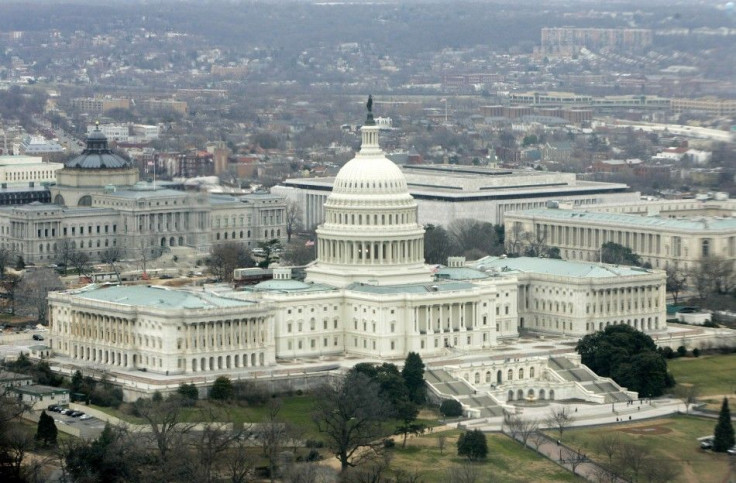As U.S. Default Nears, Democrats, GOP Still Bickering
Analysis

With less than five days remaining before the dreaded U.S. Government default, here is where the nation stands:
The Republican Party remains committed to having the U.S. House vote on a bill by House Speaker John Boehner, R-Ohio, that cuts federal spending by about $1 trillion, but that faces an uncertain future in the U.S. Senate: operatives say it's not likely to survive Democratic scrutiny in the upper chamber, where Democrats hold a majority.
Moreover, even if the bill made it out of Senate, the White House has promised a veto. White House press secretary Jay Carney Thursday dismissed Boehner's proposal and said it was "dead on arrival" in the Senate, if it passed the House, Bloomberg News reported Thursday.
Over in the Senate, Democrats led by Majority Leader Harry Reid, D-Nev., after an expected defeat of the Boehner's bill, will likely move forward with Reid's $2.2 trillion spending reduction bill.
"Today the House of Representatives will vote on Speaker Boehner's short-term plan to raise the debt ceiling," Reid said in remarks on the Senate floor, The Washington Post rported Thursday. "As soon as the House completes its vote tonight, the Senate will move to take up that bill. It will be defeated. No Democrat will vote for a short-term Band-Aid that would put our economy at risk and put the nation back in this untenable situation a few short months from now."
Reid's statement apparently rules-out use of Boehner's bill in any debt-limit compromise bill between the House and Senate.
President Barack Obama has said he favors Reid's plan. The problem is, however, Reid's plan currently does not have the 60 votes needed to invoke cloture, which cuts off the filibuster, the Senate's unlimited debate freedom.
Meanwhile, the White House has also ruled-out any possible use of the 14th Amendment's debt payment provision, which, some argue, would give the U.S. president the power to raise the debt ceiling.
President Obama said he's consulted with his lawyers and he's not persuaded that his administration would have a winning argument.
Political/Public Policy Analysis: Hence, depending on your perspective both sides are either: a) still 'amping-up' the rhetoric as a negotiating tactic before compromising; or b) pushing the nation to its biggest financial crisis since the end of Lehman Bros. during the start of the financial crisis.
Or, as Vice President Al Gore would say, 'If someone wants to say all of this posturing is a blessing in disguise, it's a darned good disguise.'
We're less than five days from a U.S. Government default, and we're no closer to an agreement to raise the U.S. debt ceiling than we were six months ago. Or a year ago. Maybe the two sides need an attention-getter from the stock and bond markets. Let's hope it doesn't come to that.
Therefore, based on the Thursday's non-progress, on a scale of 0 to 100 percent, the likelihood of a U.S. Government default has been increased to 55 percent on Thursday afternoon, up 10 percentge points from Thursday morning.
© Copyright IBTimes 2025. All rights reserved.





















